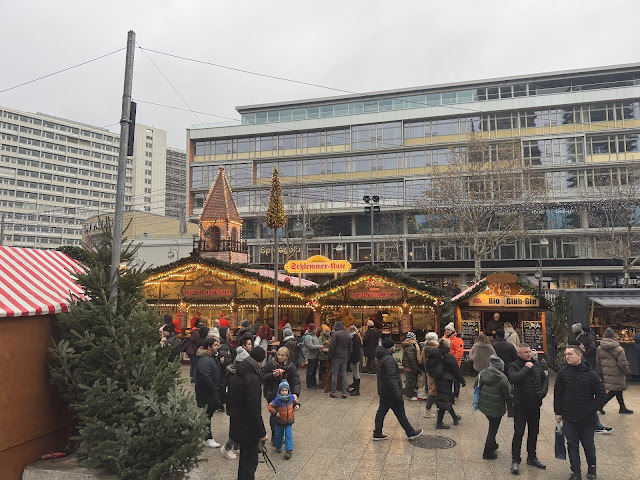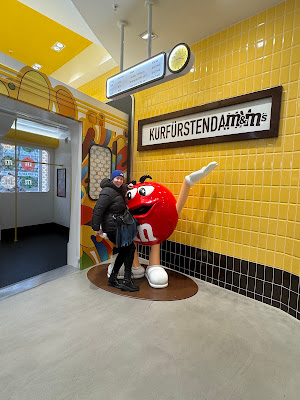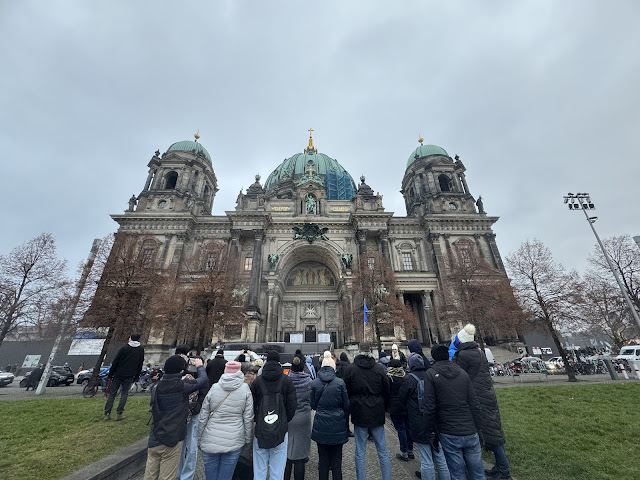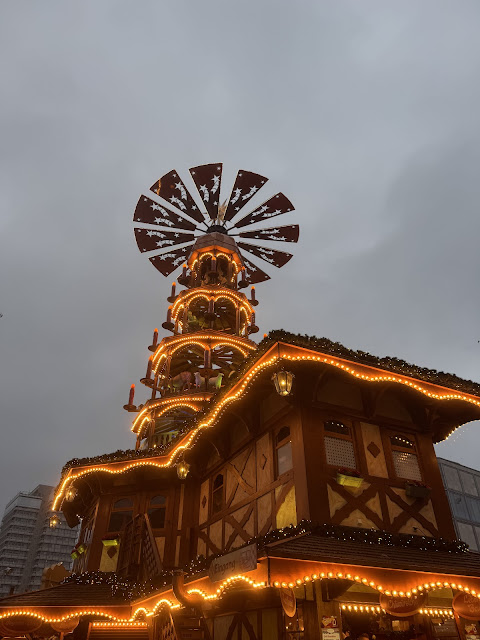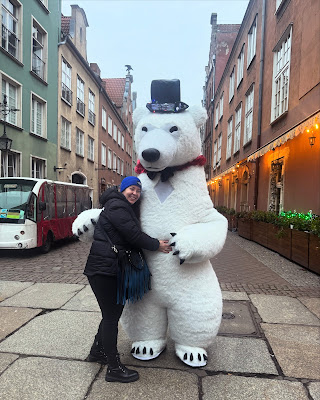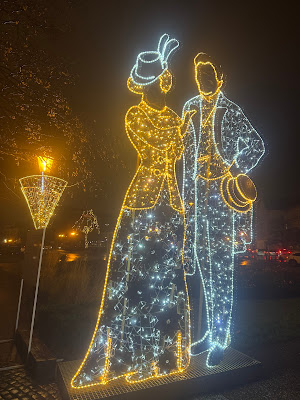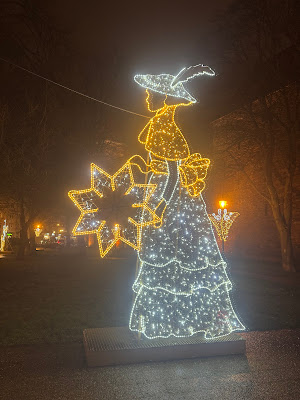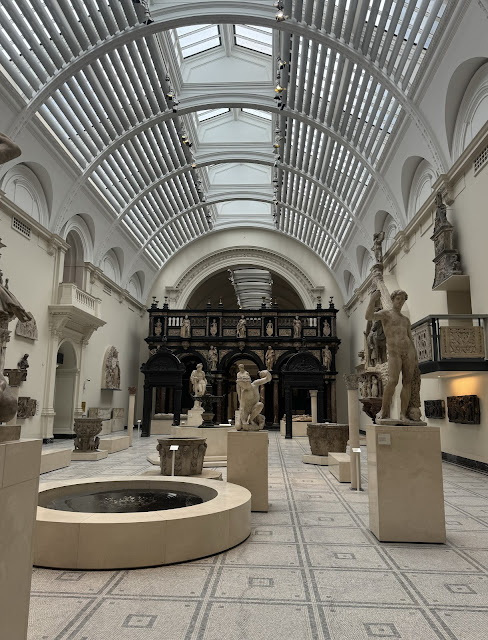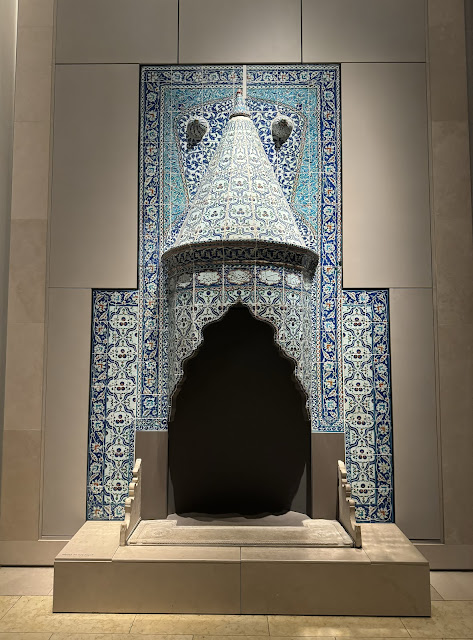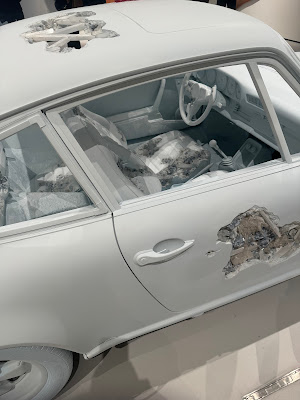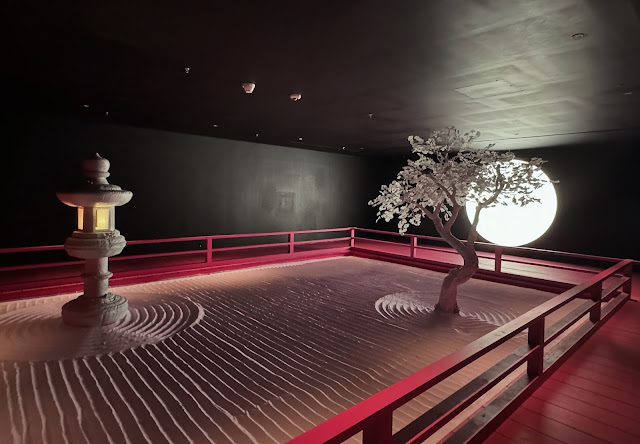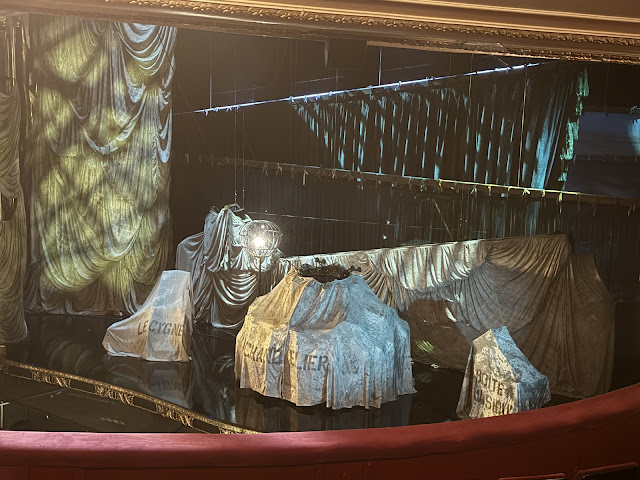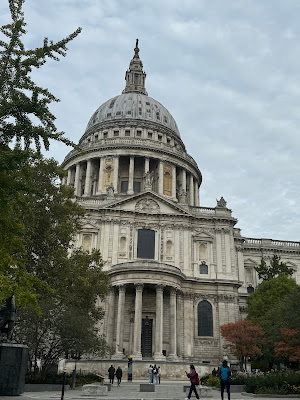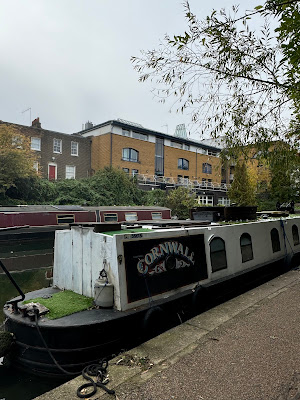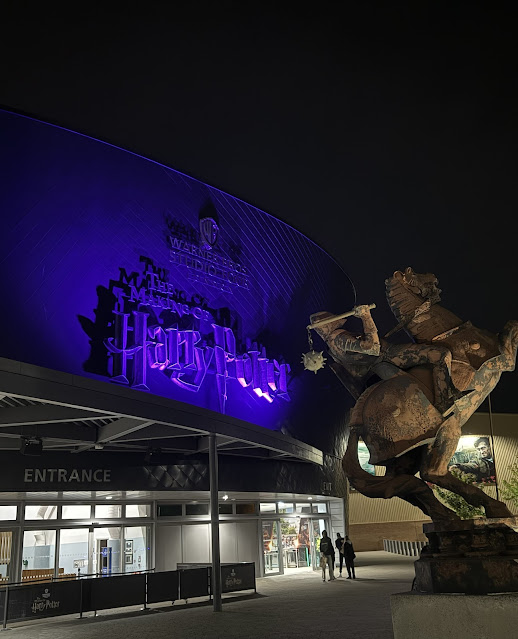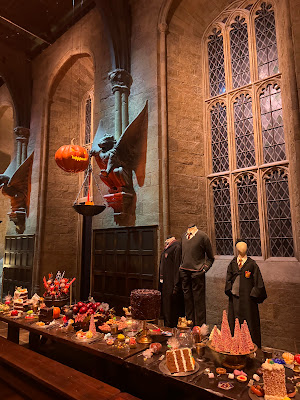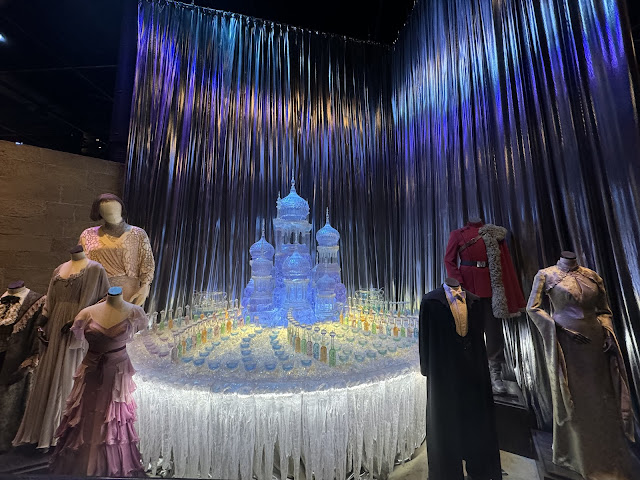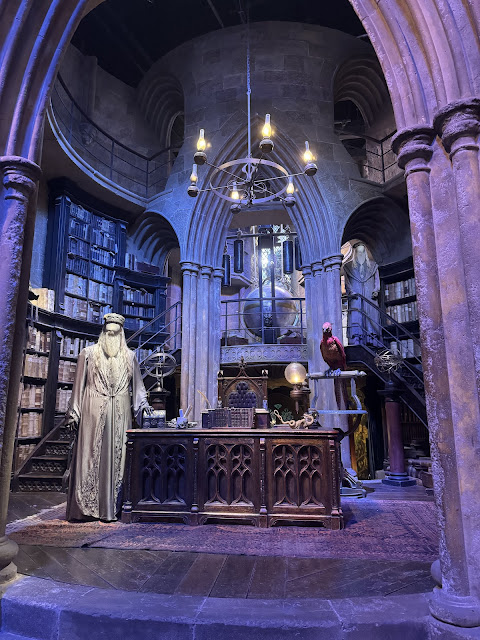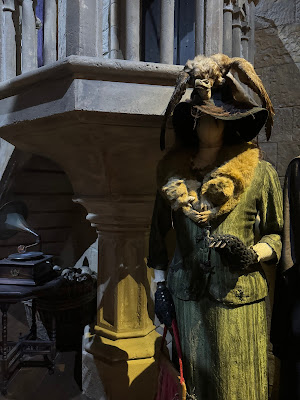14.12
"Of all the books in the world, the best stories are found between the pages of a passport"
niedziela, 22 grudnia 2024
wtorek, 10 grudnia 2024
#70 Gdańsk 2024/12
08.12
W niedzielę 08.12 wybieramy się z Hanią do Gdańska. Pierwszy i najważniejszy punkt programu to Jarmark Bożonarodzeniowy. Kosztujemy kuchni afgańskiej, a ja po raz pierwszy kasztanów. Po obowiązkowych zakupach pamiątek w postaci pierników udajemy się do Filharmonii Bałtyckiej na balet Dziadek do orzechów.
niedziela, 27 października 2024
#69 London 2024/10
11.10.2024 - 14.10.2024
St Pancras Renaissance London Hotel forms the frontispiece of St Pancras railway station in St Pancras, London. The station is one of the main rail termini in London and the final stop for international trains departing to Paris, Brussels, Amsterdam and other destinations in mainland Europe. It opened in 2011, and occupies much of the former Midland Grand Hotel designed by George Gilbert Scott which opened in 1873 and closed in 1935. The building as a whole including the apartments is known as St Pancras Chambers and between 1935 and the 1980s was used as railway offices. The upper levels of the original building were redeveloped between 2005 and 2011 as apartments by the Manhattan Loft Corporation. Its clock tower stands at 76 m (249 ft) tall, with more than half its height usable.
Leicester Square Gardens is a pedestrianised square in the West End of London. It was laid out in 1670 as Leicester Fields, which was named after the recently built Leicester House. It became more down-market in the late 18th century as Leicester House was demolished and retail developments took place, becoming a centre for entertainment. Major theatres were built in the 19th century, which were converted to cinemas towards the middle of the next. Leicester Square is the location of nationally significant cinemas such as the Odeon Luxe Leicester Square and Empire, Leicester Square, which are often used for film premieres. The square has always had a park in its centre, which was originally common land. The park's fortunes have varied over the centuries, reaching near dilapidation in the mid-19th century after changing ownership several times. It was restored under the direction of Albert Grant, which included the construction of four new statues and a fountain of William Shakespeare.
Victoria and Albert Museum (abbreviated V&A) in London is the world's largest museum of applied arts, decorative arts and design, housing a permanent collection of over 2.8 million objects. It was founded in 1852 and named after Queen Victoria and Prince Albert. The V&A is in the Royal Borough of Kensington and Chelsea, in an area known as "Albertopolis" because of its association with Prince Albert, the Albert Memorial, and the major cultural institutions with which he was associated. These include the Natural History Museum, the Science Museum, the Royal Albert Hall and Imperial College London. The V&A covers 12.5 acres (5.1 ha) and 145 galleries. Its collection spans 5,000 years of art, from ancient history to the present day, from the cultures of Europe, North America, Asia and North Africa. However, the art of antiquity in most areas is not collected. The holdings of ceramics, glass, textiles, costumes, silver, ironwork, jewellery, furniture, medieval objects, sculpture, prints and printmaking, drawings and photographs are among the largest and most comprehensive in the world.
Hyde Park is a 350-acre (140 ha), historic Grade I-listed urban park in Westminster, Greater London. A Royal Park, it is the largest of the parks and green spaces that form a chain from Kensington Palace through Kensington Gardens and Hyde Park, via Hyde Park Corner and Green Park, past Buckingham Palace to St James's Park. The park was established by Henry VIII in 1536 when he took the land from Westminster Abbey and used it as a hunting ground. It opened to the public in 1637 and quickly became popular, particularly for May Day parades. Major improvements occurred in the early 18th century under the direction of Queen Caroline. The park also became a place for duels during this time, often involving members of the nobility. In the 19th century, The Great Exhibition of 1851 was held in the park, for which The Crystal Palace, designed by Joseph Paxton, was erected.
Moco Museum (Modern Contemporary Museum) is an independent museum with locations in Amsterdam, Barcelona, and London, dedicated to exhibiting modern and contemporary art. The museum was founded with the mission of attracting broader and younger audiences, and making art accessible to the public. Plans to open a new location in London were approved in 2023. The London museum opened on 10 August 2024, located near Marble Arch. It currently includes works from Jeff Koons, Jean-Michel Basquiat, Yayoi Kusama and Banksy.
His Majesty's Theatre is a West End theatre situated in the Haymarket in the City of Westminster. The building, designed by Charles J. Phipps, was constructed in 1897 for the actor-manager Herbert Beerbohm Tree, who established the Royal Academy of Dramatic Art (RADA) at the theatre. In the early decades of the 20th century Tree produced spectacular productions of Shakespeare and other classical works, and the theatre hosted premieres by such playwrights as Bernard Shaw, J. M. Synge and, later, Noël Coward and J. B. Priestley. Since the First World War the wide stage has made the theatre suitable for large-scale musical productions, and His Majesty's has accordingly specialised in hosting musicals. It has been home to record-setting musical theatre runs such as the First World War hit Chu Chin Chow and Andrew Lloyd Webber's The Phantom of the Opera, which has run at His Majesty's since 1986, except during the COVID-19 pandemic theatre closures.
Millennium Bridge officially known as the London Millennium Footbridge, is a steel suspension bridge for pedestrians crossing the River Thames, linking Bankside with the City of London. It is owned and maintained by Bridge House Estates, a charitable trust overseen by the City of London Corporation. Construction began in 1998, and it initially opened on 10 June 2000. The bridge is located between Southwark Bridge and Blackfriars Railway Bridge. Its southern end is near the Globe Theatre, the Bankside Gallery, and Tate Modern, while its northern end is next to the City of London School below St Paul's Cathedral.
Leadenhall Market is a covered market located on Gracechurch Street but with vehicular access also available via Whittington Avenue to the north and Lime Street to the south and east, and additional pedestrian access via a number of narrow passageways. It is one of the oldest markets in London, dating from the 14th century, and is located in the historic centre of the City of London financial district.
Barbican Conservatory is the second largest conservatory in London, after the Princess of Wales Conservatory at Kew Gardens. Located at the Barbican Centre, it houses more than 2,000 species of plants and trees, as well as terrapins and koi carp. The conservatory covers 23,000 square feet (2,100 m2), and is located on top of the theatre's fly tower.
Regent's Canal is a canal across an area just north of central London. It provides a link from the Paddington Arm of the Grand Union Canal, 550 yards (500 m) north-west of Paddington Basin in the west, to the Limehouse Basin and the River Thames in east London. The canal is 8.6 miles (13.8 km) long. The Regent's Canal forms a junction with the old Grand Junction Canal at Little Venice, a short distance north of Paddington Basin. After passing through the Maida Hill and Lisson Grove tunnels, the canal curves round the northern edge of Regent's Park, passing London Zoo and skirting round the base of Primrose Hill. It continues through Camden Town and King's Cross Central. It performs a sharp bend at Camley Street Natural Park, following Goods Way where it flows behind both St Pancras railway station and King's Cross railway station. The canal opens out into Battlebridge Basin originally known as Horsfall Basin, home of the London Canal Museum. Continuing eastwards beyond the Islington tunnel it forms the southern end of Broadway Market and meets the Hertford Union Canal at Victoria Park, East London. It turns south towards the Limehouse Basin, where it meets the Limehouse Cut, and ends as it joins the River Thames.
Camden Town often shortened to Camden, is an area in the London Borough of Camden, around 2.5 miles (4.1 km) north-northwest of Charing Cross. Camden is well known for its markets. These date from 1974 or later, except for Inverness Street market, for over a century a small food market serving the local community, though by 2013 all foodstuff and produce stalls had gone and only touristy stalls remained. Camden Lock Market proper started in a former timber yard in 1973, and is now surrounded by five more markets: Buck Street market, Stables market, Camden Lock Village, and an indoor market in the Electric Ballroom. The markets are a major tourist attraction at weekends, selling goods of all types, including fashion, lifestyle, books, food, etc. While originally open on Sundays only, market activity later extended throughout the week, though concentrating on weekends.
Warner Bros. Studio Tour London - The Making of Harry Potter is a permanent exhibit offering an authentic behind-the-scenes glimpse of the Harry Potter films. It is situated inside Warner Bros. Studios in Leavesden, near Watford, in southwest Hertfordshire. Though the studios are still active, the tour is contained in two soundstages, J and K, and is kept separate from the rest of the complex. It opened to the public in 2012. Starting 13th September studio offers Dark Arts experience which lasts until 10th November (it is an anual experience).
Subskrybuj:
Komentarze (Atom)



